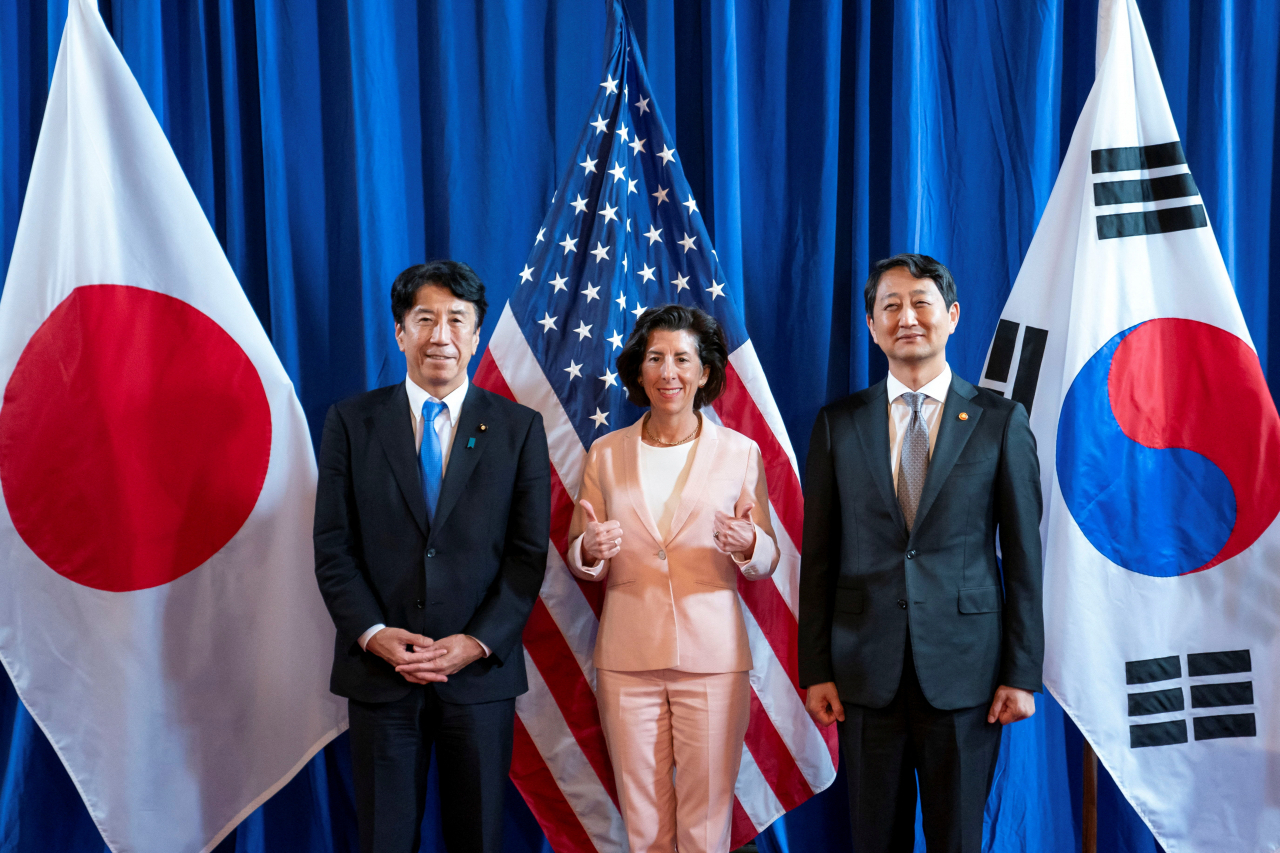
Top economic leaders from South Korea, the United States, and Japan met in Washington to strengthen their trilateral cooperation on semiconductors and key minerals supply chains. The three-way ministerial meeting, attended by Korean Minister of Trade, Industry and Energy Ahn Duk-geun, US Secretary of Commerce Gina Raimondo, and Japanese Minister of Economy, Trade and Industry Saito Ken, aimed to promote the development of core and emerging technologies and enhance the economic security of the three countries. They expressed concerns about the weaponization of economic dependencies on specific supply sources and emphasized the need to work together to identify potential supply chain vulnerabilities for strategic goods resulting from non-market policies and practices. While not explicitly naming China, the ministers raised concerns about recent non-market measures that could disrupt supply chains for critical minerals such as gallium, germanium, and graphite. They pledged to take appropriate actions to secure sustainable and resilient global supply chains and agreed to regularize the ministerial meeting to advance collaboration in areas such as semiconductors, clean energy, critical minerals, cyber security, and artificial intelligence. The meeting was based on an agreement reached at the trilateral summit between the leaders of the three countries held at Camp David in August last year, and it also covered cooperation in export controls, economic security, and long-term economic cooperation to support the Indo-Pacific Economic Framework for Prosperity.
